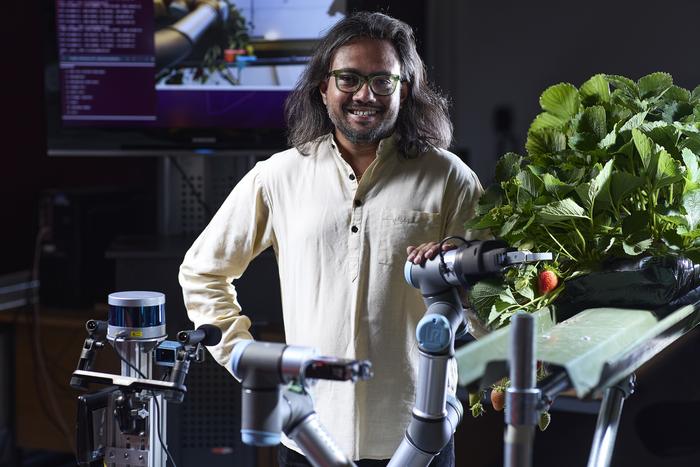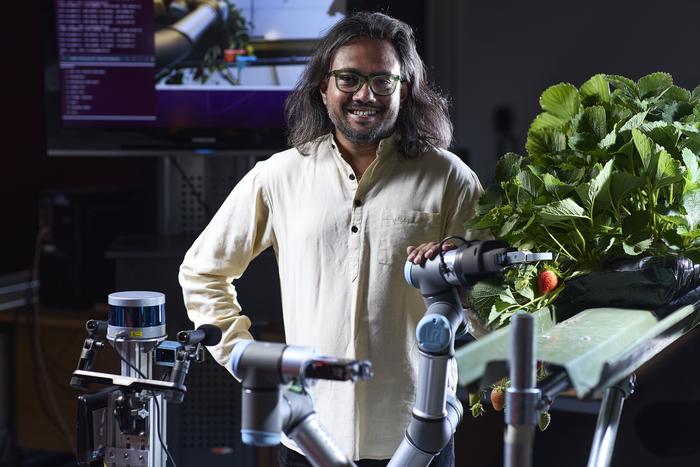Strawberry-picking robot trialled to tackle UK agricultural labour shortage

A robot designed to quickly harvest and package strawberries has been built in Essex to address the agricultural labour shortage.


Dr Vishwanathan Mohan with the strawberry-picking robot. Credit: University of Essex
Researchers from the University of Essex, in partnership with renowned jam maker Wilkin & Sons, are trialling a new robot designed to pick strawberries in a matter of seconds.
Funded by a £1.02 million grant from the Department for Environment, Food and Rural Affairs’ (Defra) Farming Innovation Programme, the project aims to make robotic harvesting more affordable for farmers.
While existing crop-picking robots cost around £150,000, this new prototype, which can pick a strawberry in just 2.5 seconds, is expected to be significantly cheaper, at around £10,000.
“Robotics is a game changer to tackle some of the critical challenges facing us – food security, labour security, climate and energy,” Dr Vishwanathan Mohan said.
The design and development of the robot have been led by Dr Mohan and Professor Klaus McDonald-Maier from Essex’s School of Computer Science and Electronic Engineering.
“Through this project, we want to transform how food is grown efficiently using robotics and AI and make state-of-the-art agri-robotics technologies accessible to everyone,” Dr Mohan explained.
“Even if smaller farms and businesses can afford a robot, you need a whole fleet of them to make a difference, so it is vital we find cost-effective alternatives to help the agricultural industry.”
The ‘most significant challenge’
Using a robotic arm, the prototype picks, weighs, and packages strawberries, reducing the labour-intensive work of crop picking. The automation is expected to not only improve efficiency but also extend the shelf life of produce by speeding up the packaging process.
Its modular design means it can be adapted for other crops, including onions, tomatoes, and lettuce, with trials planned later in the project.
Chris Newenham, Joint Managing Director of Wilkin & Sons, said the company are “delighted” to partner with the University of Essex in tackling what is currently “the most significant challenge” for the industry.
He added, “These challenges are inordinately complex and take time, it is work which is definitely not for the faint-hearted. But we are confident that we are working with the very best partners and very much looking forward to seeing the fruits of our collective labours over the coming years.”
Source: newfoodmagazine.com

